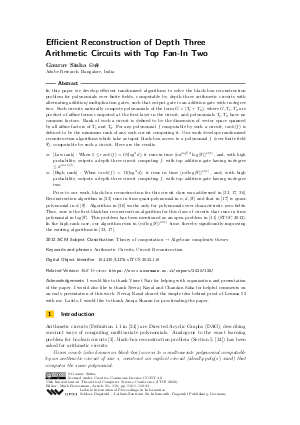LIPIcs.ITCS.2022.118.pdf
- Filesize: 0.99 MB
- 33 pages

 Creative Commons Attribution 4.0 International license
Creative Commons Attribution 4.0 International license












Feedback for Dagstuhl Publishing